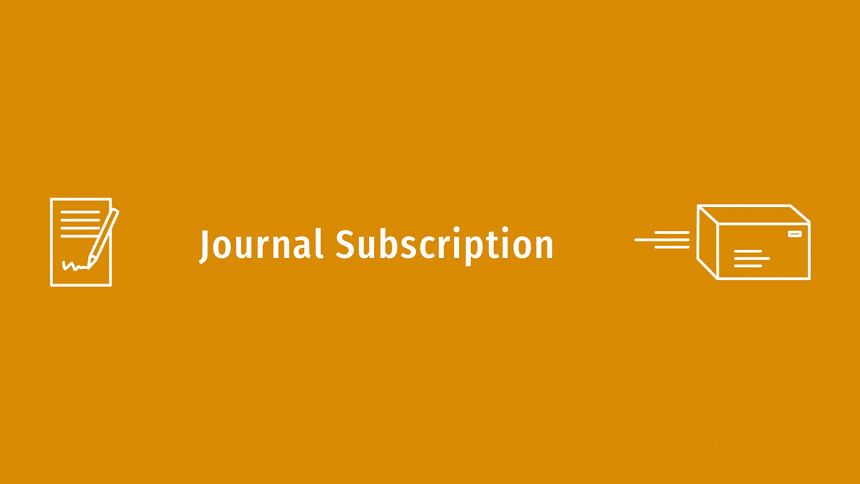Subscription to Int’l journals: Tax rules, high dollar rate raise concern

Researchers of 40 universities and research institutes in Bangladesh are likely to face severe difficulties in carrying out research, as their subscriptions to international e-journals may have to be cancelled.
The uncertainty over discounted subscriptions came to the fore after a local bank said the authorities concerned would need to clear advance income tax arrears.
An official of Bangladesh Science Academy (BAS) said their local bank in 2016 had said the academy needed to ensure that all VAT and taxes were paid before sending subscription money in US dollars. After that, the academy proved to the local bank that they are a non-profit organisation and hence exempted from VAT.
But in the first half of 2022, the bank again said that the academy will need to clear issues related to tax, meaning advance income tax.
Meanwhile, some universities are already struggling to pay for the subscriptions for their researchers and teachers with the dollar rate at an all-time high.
If the subscriptions are scrapped, Bangladeshi researchers will not get access to around 10,000 e-journals. For access, they will need to pay a higher subscription cost, said officials of Bangladesh Academy of Science (BAS).
As part of Library Consortium Bangladesh (LiCoB), the BAS manages and gets subscriptions at a 90 percent, if not higher, discount rate.
The high cost of journals and research materials has always been a drawback for researchers and teachers in the country and it is one of the major reasons for the low numbers of researches conducted here. If the subscriptions to e-journals are terminated, the situation would further worsen, BSA scientists said.
"The authorities concerned recently said we would need to pay an advance income tax (AIT) of 20 percent, along with the arrears of previous years," said BSA Secretary Prof Haseena Khan, also a renowned scientist and professor of Department of Biochemistry and Molecular Biology at Dhaka University.
"Chances are high that we will need to cancel the subscriptions if this issue is not addressed and the AIT isn't withdrawn," she warned.
E-journals are accessible at anytime and anywhere, and are easily downloadable, with articles that can be found by phrases or keywords, making work easier for researchers.
BSA officials said that in 2022, the total subscription fee for accessing over 10,000 e-journals of 15 to 20 internationally-acclaimed publishers was $3.36 lakh. Of the amount, around $50,000 still needs to be paid.
They said universities and research institutes, divided into eight tiers, need to pay their share of the amount, which is later paid to publishers in dollars.
Every year, about 8 to 10 lakh articles are downloaded under the subscription.
"The universities are paying us in taka, but when we are converting it to dollars, there's a deficit since the exchange rate has increased," said a BSA official.
The official also pointed out that many universities delay paying their share, which also causes the deficit, adding that they now need to pay $4.63 lakh and arrears of AIT.
In a letter to the NBR, the BSA sought the withdrawal of the advance income tax.
The letter, issued in late January, said the BSA has been managing the subscriptions since 2006 through a memorandum of understanding with the International Network for the Availability of Scientific Publications (INASP), a non-profit charitable organisation based in the UK's Oxford, founded originally by the International Science Council and sponsored by Unesco among other organisations.
Before the Library Consortium of Bangladesh was formed, it was done through the Programme for the Enhancement of Research Information (PERI) of INASP.
Since 2006, world-renowned publishers and distributors, such as Springer Nature, Oxford Journals, Royal Society for Chemistry, Cambridge Journals and others, have been providing the opportunity to download e-journals and e-books at a heavily discounted rate in Bangladesh on the basis of an agreement with the aforementioned international organisations.
"Bangladesh Science Academy isn't getting any financial benefits through this programme, but is working only to spread [knowledge on] science and technology in the country," the letter said.
It added that it would be "wrong" to put the subscription in the same category as commercial transactions, as this is the result of an international initiative to ensure that scientists and researchers of developing countries like Bangladesh aren't deprived of the latest facts.
"If a tax or tax at source is imposed, it won't be possible to carry out this activity at all. As a result, research work during higher education will be severely hampered," it said.
There is a tax exemption on the import of printed books and journals, the BSA further said in the letter, adding, "Imposing a 20 percent advance income tax on non-resident organisations for the purchase or subscription of digital content falls on the Bangladeshi party as an indirect tax."
The NBR had earlier exempted the BSA from VAT and income tax under a special order in 2021, the letter read.
Meanwhile, Planning Minister MA Mannan, in a demi-official letter to the NBR, also requested the tax authority to withdraw or exempt the advance income tax or tax at source on the BSA, saying it was a non-profit organisation.
Contacted, a senior NBR official said the tax authority collects source tax on payment to a non-resident organisation or a seller or service provider abroad against purchases.
It collects as much as 20 percent source taxes on payments to such organisations, as per the income tax law.
The official added, "The tax-deduction provision from income of non-residents has been in effect for many years, so we haven't imposed the tax just now. When e-books and e-journals are purchased, it becomes the seller's income, and we collect tax from the seller, not from the buyer."
If the publishers pays the AIT, the subscription price would automatically increase and the burden will eventually fall on the academy, so the BSA is calling for an exemption from AIT, he added.

 For all latest news, follow The Daily Star's Google News channel.
For all latest news, follow The Daily Star's Google News channel. 



Comments